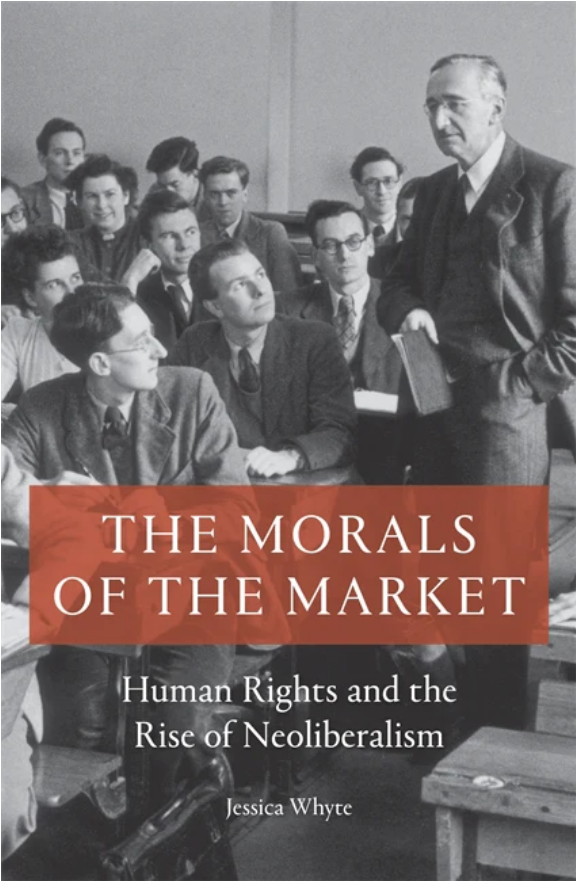Jessica Whyte begins The Morals of the Market with an anecdote about the 2017 Grenfell Tower fire that is simultaneously horrifying in its crassness and blandly familiar. In the wake of that devastating fire which killed seventy-one people and left hundreds homeless, Jeremy Corbyn quite reasonably suggested that empty investment properties in this upper-class, West London neighborhood might be requisitioned to house survivors currently sleeping on floors in churches, mosques, and local halls.
The temerity of this proposal sparked outrage among the propertied and the invested. It prompted Conservative Party peer Daniel Finkelstein to compare Corbyn to Hugo Chávez in an op-ed for the Times, which argued that the solution to Grenfell lay in the Human Rights Act. Human rights protections exist, he continued, precisely for such an occasion: so that people “can secure their individual liberty — in this case, their property — when the popular will is against them.”
It would be easy, Whyte notes in her introduction, to dismiss Finkelstein’s use of human rights language as baldly cynical and self-serving, a response all too common among academics when confronted with the hypocrisy of public figures like Finkelstein, Niall Ferguson, or Thomas Friedman. Such dismissal, however, fails to grasp the way Finkelstein’s take on human rights “has a long lineage among neoliberal politicians and thinkers.” Indeed, as Whyte demonstrates, this neoliberal understanding of human rights evolved historically alongside and in relation to those “true” human rights that would seem to adhere most logically to a tragedy like the Grenfell fire: the right to adequate housing or the right to water and sanitation.
The Morals of the Market thus traces and analyzes this braided development, emphasizing the “historical and conceptual relations between human rights and neoliberalism” that emerged in the wake of the Second World War and hit their stride in the 1970s and ’80s. Rather than treat human rights and neoliberalism as two distinct, global logics — one best expressed in the words of the Universal Declaration of Human Rights (UDHR), the other in Margaret Thatcher’s withering pronouncement that “there is no alternative” to austerity — Whyte illuminates how human rights “became the dominant ideology of a period marked by the demise of revolutionary utopias and socialist politics.”
Beautifully written, theoretically sophisticated, and excoriating all at the same time, Whyte’s book follows the efflux of this ideology, from its origins in the 1940s, through the postwar period, the Chicago Boys’ involvement in Chile, the rise of Amnesty International, and the perverse anti–Third Worldism and anti-statism of human rights NGOs in the 1980s. Of course, she is not the first scholar to query the convenient overlap between human rights and neoliberalism. Samuel Moyn, for instance, describes human rights as “powerless companions” of a global, neoliberal economic agenda. Likewise, Wendy Brown observed in 2004 that neoliberalism and human rights seem to “converge neatly” in order to legitimize an imperialist agenda of global free trade.
